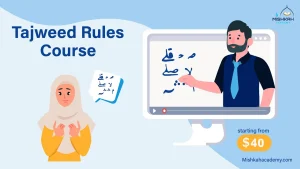You don’t speak Arabic and You want your child to learn this language for cultural or religious reasons, or perhaps both. But you don’t know where to start, or if that’s even possible. It can feel overwhelming and intimidating, especially if your native language is very different from Arabic. But we have good news for you: Not only is it possible to teach your child Arabic as a non-native speaker, but it can actually be a great way to increase family bonding, curiosity, and religious understanding, God willing! Here are 6 tips to get you started!
Tip #1: Be clear on your goal and realistic with your expectations.
Table of Contents
ToggleThis may seem obvious, but we often lose sight of it in the process. Before you actually start teaching your child Arabic, ask yourself why you want it in the first place. Should they learn a foreign language? exposed to a different culture? Because your in-laws speak Arabic and you want them to communicate? Do you want them to Memorize Quran? Depending on your answer (and it’s okay to have multiple goals too – just make sure you keep those in mind as you move forward), your strategy and tools may look different. For example, communicating with Arabic-speaking family members may mean that your child needs to learn a specific dialect, not just Standard Arabic. If it is for religious purposes, they will need specific Quranic vocabulary, which is not the spoken Arabic you will hear on the streets of Cairo, etc. As for your expectations, be prepared to accept that your child may not have the same desire to learn a language, or that things may not go as quickly as you would like. It’s fine to hold yourself accountable for the teaching process, but avoid putting too much pressure on yourself, your child, or other family members.
Tip #2: Consider taking Arabic classes yourself
Consider taking Arabic lessons on your own or finding reliable resources (there are plenty of them for free!) if you don’t understand any Arabic at all to raise your comfort and confidence levels. This is not a necessity as you can learn well with your child (just be aware that they may learn faster than you!), but for many parents we know that a little more knowledge than that may be needed in order for them to feel comfortable enough to teach their children. Actively learning Arabic can interest your child, as children naturally want to imitate their parents. Check out online Arabic lessons at Mishkahacademy.com!
Tip #3: Use play-based learning!
In a previous blog post we talked about how play can help your child learn Arabic (or any other subject, really). This is especially true of young children. So make sure to include lots of activities and games, rather than a lecturing style that might turn off your child’s interest in the language. Remember that language is a living thing and the best way to learn is by living it.
Tip #4: Immerse yourself at home!
Going to live in an Arabic speaking country for a few weeks or longer is probably the best way for you or your child to learn the language, but not many people can afford to do so. So the next best way is to try and bring that indulgence into your own home! Get creative: label house items (chair, table, door, etc.), invest in Arabic children’s books (and some for yourself too), try out Arabic TV channels, podcasts, and cartoons, put up some stickers with Arabic words like your household chore chart translated into Arabic, etc. Think of anything that would bring more Arabic into your home so that your child gets to know the language as much as possible. Check out this blog article containing 8 ways to surround yourself with the Arabic language!
Tip #5: Find yourself a community.
Arabic is one of the best languages in the world, and this trend is increasing. So chances are you’ll find a group or community in your area that shares your interests – or maybe even native speakers! Check with your local mosque or university (if they teach Arabic there, they will likely have some suggestions), or even the school district (more and more public schools are incorporating Arabic into their course offerings nowadays). If you really can’t find anything, you can consider creating your own local group, or you can find this type of community online very easily, on social media or with a basic Google search.
Tip #6: Don’t give up!
There will be ups and downs in the process, some days will be fun and enriching, others will feel like a chore and the whole family may want to forgo language altogether. When that’s the case, keep calm and come back to your “why.” he deserves it!
For more resources, free downloads, and other tips, visit our blog at mishkahacademy.com/blog.



























